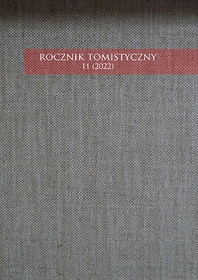Przyjemność w filozofii starożytnej: Platon, Arystoteles, Epikur
Pleasure in Ancient Philosophy: Plato, Aristotle, Epicurus
Author(s): Magdalena PłotkaSubject(s): Philosophy, History of Philosophy, Ancient Philosphy
Published by: Naukowe Towarzystwo Tomistyczne
Keywords: pleasure; ancient philosophy; Plato; Aristotle; Epicurus
Summary/Abstract: The integral concept of pleasure seeks the answer to the question what various experiences of pleasure have in common. While contemporary philosophy partially capitulates before responding to this question, the integral and unifying concept of pleasure, ancient philosophers eagerly took up this thread and tried to elaborate on the essence of experience or the state of pleasure so as to be able to indicate its essential and inalienable element in various experiences. The aim of the paper is to present the three greatest concepts of pleasure in ancient philosophy: Platonic, Aristotelian and Epicurean. Although at the root of all three concepts is the same question and the same research problem to be solved (i.e. “what is pleasure in its essence”), the answers to this question were quite different. For Plato, pleasure is some kind of change in the soul or body (kinesis), he emphasized the nature of pleasure as a process. Aristotle, in turn, recognized pleasure not as a process, but as an activity, more precisely as a quality built on activity. The views of both philosophers can be considered “metaphysical”, i.e. they sought to answer the question about pleasure in terms of the nature and structure of this experience. Many scholars of ancient thought find inspiration for these concepts in ancient medical thought, especially the doctors of Hippocrates and Polybus of Kos. Similar influences are noted in the case of Epicurus’s concept of pleasure: although we would consider his concept as ethical rather than metaphysical, the relationship between Epicurean philosophy of pleasure and medicine is twofold. On the one hand, like Aristotle and Plato, he was influenced by the medical thought regarding the explanation of the nature of pleasure and pain, on the other hand, the influence of epicureanism, e.g. on medieval Arabic medical thought.
Journal: Rocznik Tomistyczny
- Issue Year: 2022
- Issue No: 11
- Page Range: 53-64
- Page Count: 12
- Language: Polish

